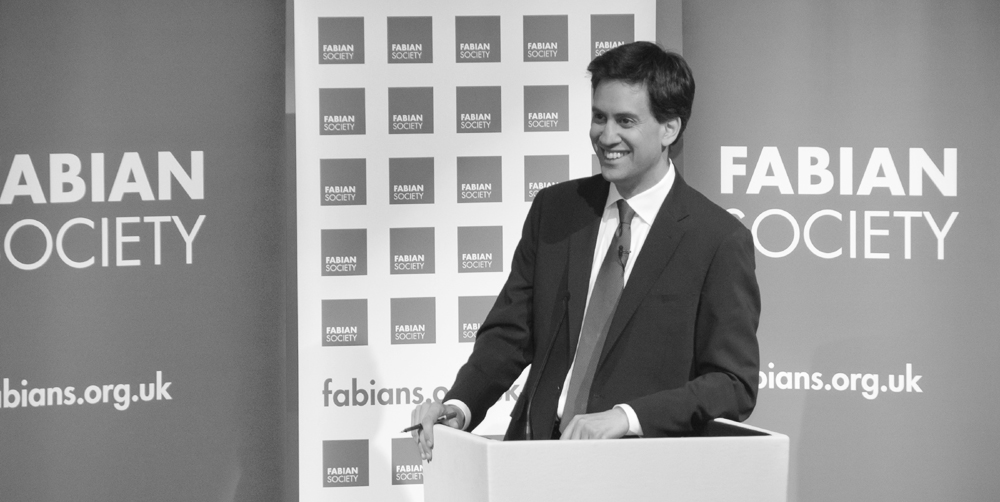Labour’s governing purpose
Ed Miliband should resist calls to announce policy at this year’s Labour party conference. There is always a lot of pressure on the leader’s speech at any party conference. Competing priorities are forcefully prescribed, some calling for more detailed policy commitments,...
Ed Miliband should resist calls to announce policy at this year’s Labour party conference.
There is always a lot of pressure on the leader’s speech at any party conference. Competing priorities are forcefully prescribed, some calling for more detailed policy commitments, others for stronger opposition attacks. Ed Miliband must instead use this opportunity to explain further why Labour wishes to govern after 2015.
New pollingby the Fabian Society (published in the autumn 2012 Fabian Review) shows that political apathy is driven by perceptions of a political class who aren’t interested in solving the problems that people face. The perception is one of politicians who are preoccupied with point scoring skirmishes with opposition parties. The leader’s speech is a rare opportunity to speak to the country, and Miliband should build on the work he has done over the last two years to reconnect Labour politics with people’s lives.
Since being elected as leader of the Labour party in September 2010, Miliband has been successful in placing short-term events such as the Libor and phone hacking scandals in the longer run context of economic and social crisis affecting the UK. This analysis has formed a key part of Miliband’s narrative of national and civic renewal, which combines an intelligent diagnosis of where the UK finds itself and where it would go under a Labour government.
Miliband’s speech must extend this narrative of change. It should do so in a way that articulates a clear account of how life could be different and better for people under a Labour government. Above all, it must explain Labour’s governing purpose. Its significance and potency will be all the greater in contrast to the coalition, whose path dependency toward ever deeper austerity reflects its absence of positive vision for Britain.
How might Miliband articulate this compelling account?
It must begin by demonstrating an understanding of the radical uncertainty people are experiencing in their everyday lives: a world that looks the same, but remains unstable and resistant to attempts by communities to group together and manage their affairs.
Labour should prioritise a politics that can deliver stability and hope. As Miliband himself is aware, in an era of multiple crises – indeed, by the very nature of capitalism – no party can eliminate this instability. But in contrast to the fear and disunity that austerity promotes, Labour must provide a roadmap to an economy that is built on public investment in a future that works in the interests of the broad majority. This should be a future in which power and wealth are no longer concentrated in the hands of a few. This means building on debate about how more equal societies are more stable societies too. It means explaining that the high costs of welfare are the price we pay for a failing economy. It also means being clear that while the politics of the common good may come with a cost, this is a cost worth bearing if it delivers a future that Britain deserves.
Here, Labour can draw on the huge advances that politics has delivered for society in the past: the building of the NHS and the modern welfare system at a time of deep economic uncertainty following the second world war; the introduction of a minimum wage at a time when Conservative politicians warned it would spell economic catastrophe.
This is not a nostalgic defence of ‘warm beer’ and ‘invincible green suburbs’, but recognition that people fear the future and feel unable to take control of their lives.
Miliband and the Labour party must once again seek to give people the confidence that at its best, politics can be the vehicle by which people realise their collective aims and aspirations. Most people will tell you that the Labour party is against the Conservatives. The leader’s speech will be a success if more people can confidently say what Ed Miliband and the Labour party are for.
